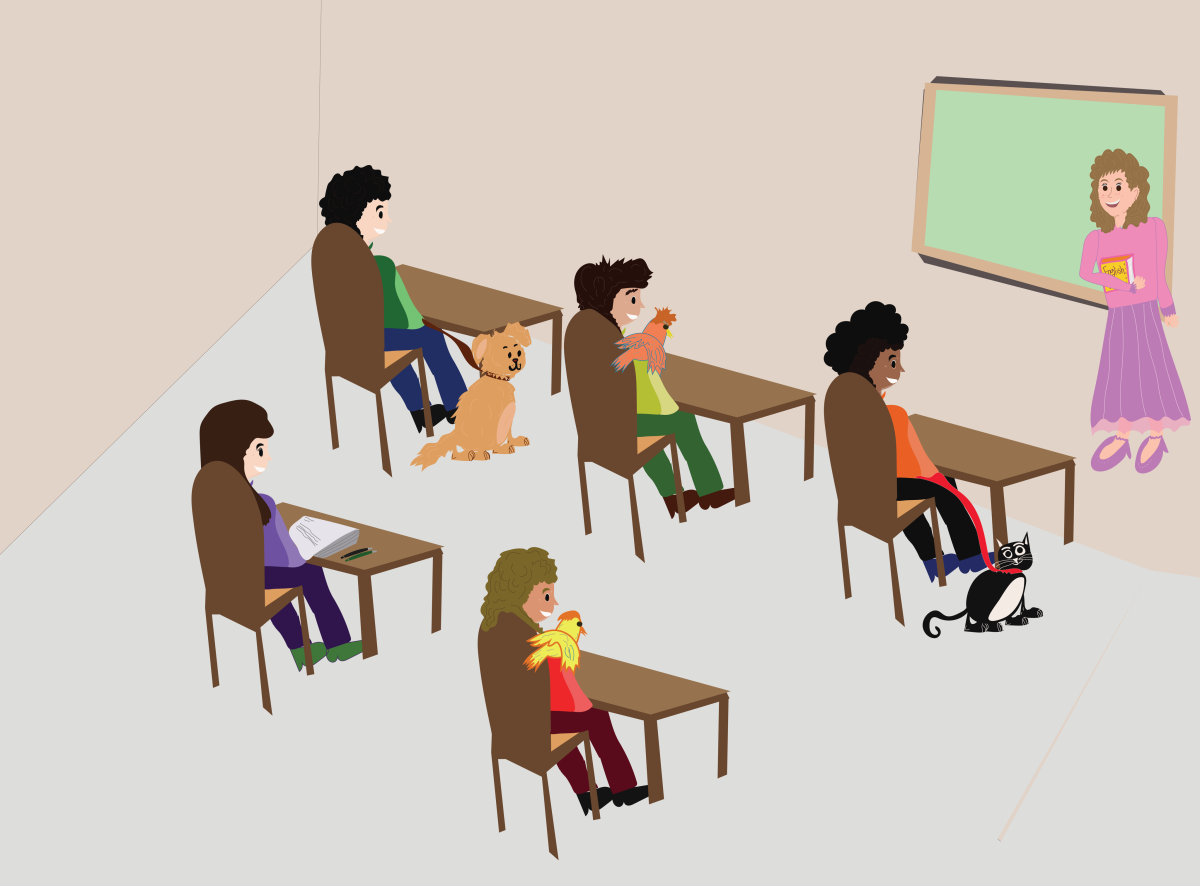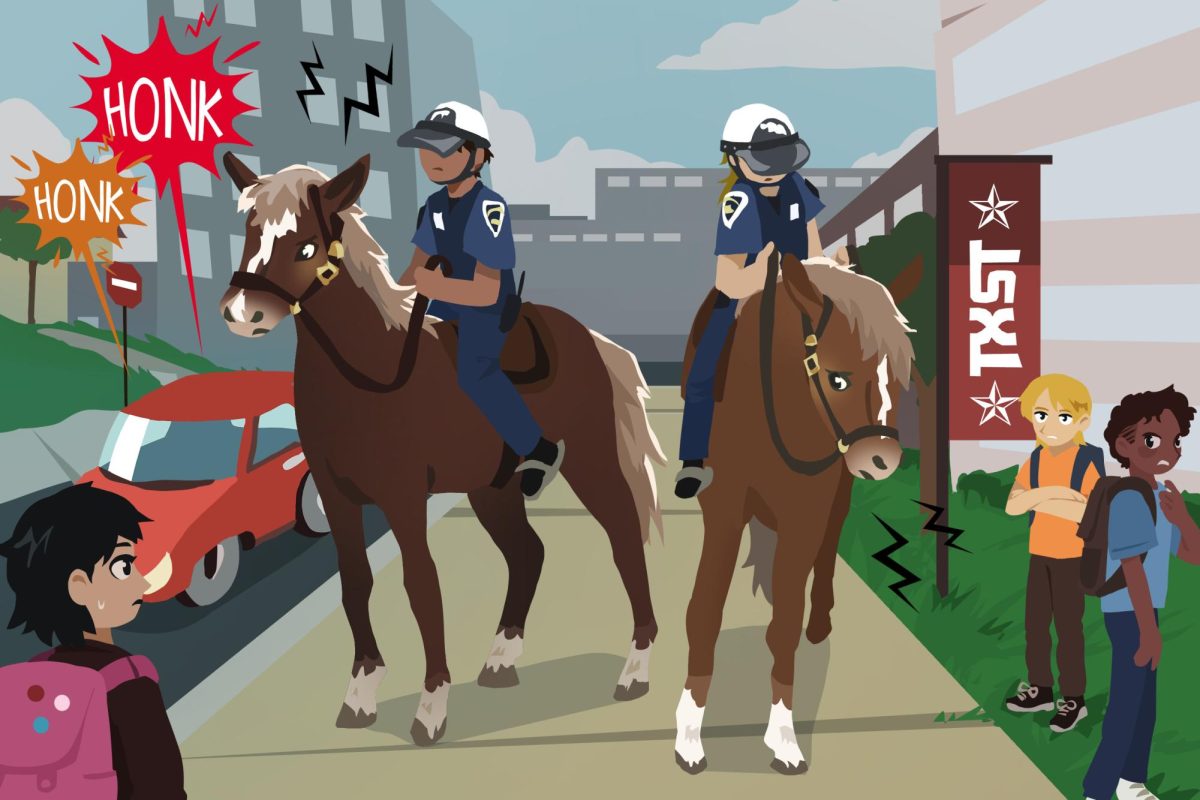For students experiencing anxiety, depression, homesickness or loneliness, one of the ways they can cope is through emotional support animals (ESAs). As a way to provide companionship and help ease the stresses and triggers of being in college, students should have access to bring their ESAs to class.
However, unlike several college campuses across the country, Texas State does not allow students to bring their ESAs to class. In order to foster a healthy and safe learning environment, Texas State needs to change its current policy and offer emotional support animal-friendly classes as an option for those who need it.
Due to the Fair Housing Act, students who have registered ESAs and adequate documentation can bring their ESAs to campus housing. However, not all campuses allow students to bring ESAs to class or other places on campus including residence hall common spaces, academic or administrative buildings, recreational facilities or dining halls.
In an emailed statement to The University Star, Texas State’s Office of Disability Services (ODS) stated service animals are the only animals permitted in classrooms since they are trained to perform specific tasks for students living with a disability and provide more than just companionship, comfort or emotional support.
Abby Gage, a journalism senior, owns a goldendoodle named Nova, who serves as a service dog and an ESA. Besides helping Gage with her Type 1 diabetes, Nova also gives her the stress and anxiety relief during class that school can often cause. After having Nova with her throughout all her years at Texas State, Gage knows the troubles that having a service animal/ESA can bring.
“It did take quite a while to be able to get Nova to be at the dorms,” Gage said. “I did have quite a few problems with the Office of Disability Services just with the process. It took an entire semester before I heard back from them so that was a big ordeal I had to deal with. ODS didn’t cooperate as well as I had hoped or expected. I thought they would be a lot more open to helping me out.”
The overall cost of owning a dog as a college student is stress compiling, as it can cost between $360-2,520 annually to take care of one. Gage has personally never had to pay any fees for Nova but said other students sometimes pay a hefty amount for animal cleaning and registration fees.
While service animals are allowed at Texas State, proper paperwork must be filed with ODS and it can take up to 30 business days for staff to review it. Through the Americans with Disabilities Act, service animals are allowed to be on campus since their owners can experience physical health and safety risks without them. ESAs don’t have the same legal rights as other service animals in this regard as they only help with psychological health and safety.
Paulina Rivera, a nursing freshman, is the co-owner of a cat named Mac. Mac is a registered ESA and is only allowed in Rivera’s dorm. After a stressful and anxiety-filled day at class, Rivera is happy to come home to the comforting purrs of Mac.
“Mac definitely helps me a lot. In particular, I have anxiety and depression, and starting school here was not the easiest thing,” Rivera said. “Mac helps me a lot with feeling more at home here. There have been a lot of benefits to having an ESA cat and Mac is really supportive.”
Rivera wishes she could bring Mac to class with her and is frustrated that ESAs do not have the same rights as other service animals, despite aiding her anxiety and depression when he is present.
“To this day, a lot of people still don’t see mental illness as a disability. Since mental illness is not something as visible as physical disabilities, people don’t see it the same way,” Rivera said. “Personally, it would be really helpful to me to bring Mac to class because I’ve had things in the past happen to me like panic attacks in the middle of class that wouldn’t have happened if Mac was there.”
Despite one in five Americans (52.9 million people) living with a mental illness, mental health continues to not be treated as seriously as a physical disability. As the world evolves from the ramifications of the COVID-19 pandemic, it is imperative that institutions rethink social norms and their traditional operations.
Some businesses like Airbnb and Amazon have already shifted their workplace environment by allowing ESAs in the workplace. As a way to improve the mental wellbeing of students, colleges and universities should also permit students to bring an ESA to school. In fact, a study from Washington State University revealed having animals in classes helps improve students’ memory and attention levels.
If colleges and universities make the switch to allow ESAs in classrooms, it’s also important to take into consideration the effects having animals in a learning environment could cause. Some students could be allergic to certain dogs or cats and some pets might cause distractions.
A solution to these potential concerns would be to designate certain classes as ESA-friendly, meaning students without an ESA would have the option to choose between an ESA-friendly class or a regular class without animals.
ESA-friendly classes would not only provide more class options but attract prospective students. If Texas State were to allow ESAs in class, it would find the benefits far outweigh any disadvantages. Students will generally be happier and overall morale will improve.
– McKenna Bailey is a digital media innovation senior
The University Star welcomes Letters to the Editor from its readers. All submissions are reviewed and considered by the Editor-in-Chief and Opinion Editor for publication. Not all letters are guaranteed for publication.
Opinion: Texas State should allow emotional support animals in classes
April 22, 2022
Donate to The University Star
Your donation will support the student journalists of Texas State University. Your contribution will allow us to purchase equipment and cover our annual website hosting costs.

























